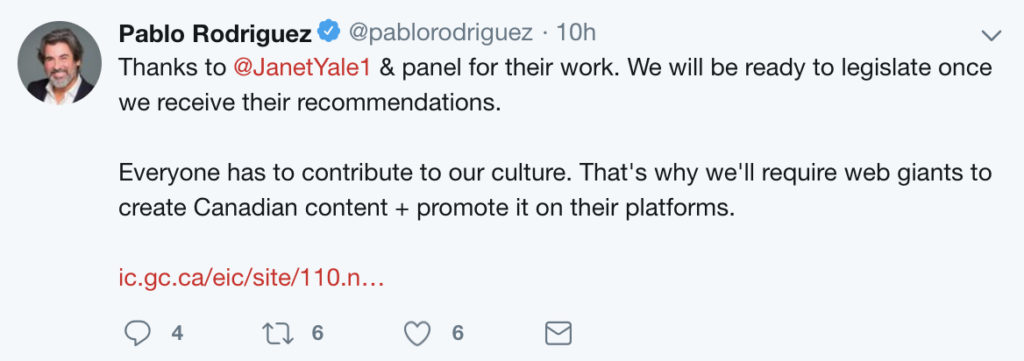The Broadcast and Telecommunications Legislative Review Panel released its interim report – What We Heard – yesterday alongside the long-overdue release of the written submissions to the panel. The report doesn’t contain any surprises given that the various positions on key telecom and broadcast issues are well known. While the panel is set to deliver its final report in January 2020, there is increasing reason to suspect that the government (if re-elected) has already decided what it wants to do.
The government’s position on telecom can be found in its telecom policy directive to the CRTC, which prioritizes competition, affordability, consumer interests, and innovation. The policy directive, unveiled after the submissions to the BTLR, confirmed support for entry of new competitors such as mobile virtual network operators. That rendered many submissions from the large telecom companies irrelevant since they devoted many pages to convince the panel to support a facilities-based competition model. Since the government has rejected that approach, that issue is largely resolved.
Yesterday, Canadian Heritage Minister Pablo Rodriguez signalled that the government’s position on the major broadcasting – Canadian cultural issue is also set. For months, government officials have argued that large Internet companies need to contribute to Canadian content creation, thought it has avoided specifying precisely how. For example, former-Canadian Heritage Minister Melanie Joly said:
All players in the system must contribute. So if you’re part of the system, you have to contribute, and there’s no free ride. But that can’t be at the expense of Canadians.
The government struggled to reconcile that position with costs to Canadians as Innovation, Science and Economic Development Minister insisted that “a critical issue is making sure Canadians do not pay more.”
With an election weeks away, the government position seems to have shifted. Soon after the release of the BTLR interim report, Rodriguez tweeted:

By suggesting that the Liberals are ready to commit to legislative reform that would require Internet companies to create and promote Canadian content, the government has seemingly shifted its policy approach well ahead of the final BTLR report. All of which begs the questions: with firm positions on both telecom and broadcast, what is the point of the BTLR if the government has already decided what it intends to do?








That’s amazing
Pingback: News of the Week; July 3, 2019 – Communications Law at Allard Hall